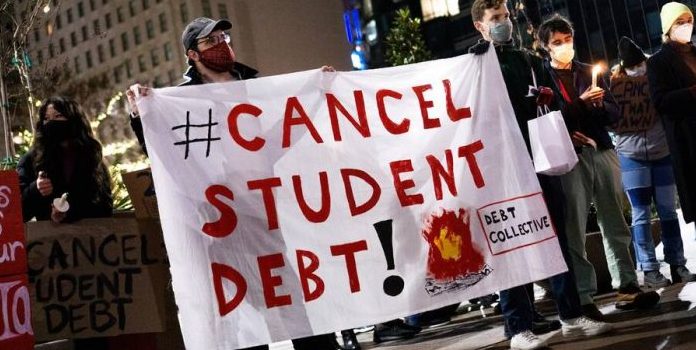(Headline USA) President Joe Biden’s plan to transfer hundreds of billions of dollars in student loan debt to U.S. taxpayers lost another battle in court on Monday when a federal appeals court panel agreed to a preliminary injunction halting the program while an appeal plays out.
The ruling by the three-judge panel from the 8th U.S. Circuit Court of Appeals in St. Louis came days after a federal judge in Texas blocked the program, saying it usurped Congress’s power to make laws.
The Texas case was appealed, and the administration is likely to appeal the 8th Circuit ruling as well.
The plan to transfer up to $20,000 in student loan debt for those making less than $125,000 or households with less than $250,000 in income was estimated to cost upward of $800 billion.
A federal judge on Oct. 20 allowed the program to proceed, but the 8th Circuit the next day temporarily halted it pending an effort by the states of Nebraska, Missouri, Iowa, Kansas, Arkansas and South Carolina to block the program.
The new ruling from the panel made up of three Republican appointees—one was appointed by President George W. Bush and two were appointed by President Donald Trump—extends the hold until the issue is resolved in court.
White House Press Secretary Karine Jean-Pierre said that so far, 26 million people had applied for debt relief, and 16 million people had already had their relief approved. The Department of Education would “quickly process their relief once we prevail in court,” she said after the ruling Thursday in Texas.
In that ruling, U.S. District Judge Mark Pittman—an appointee of Trump based in Fort Worth—was critical of the way the program moved ahead without Congressional approval.
“In this country, we are not ruled by an all-powerful executive with a pen and a phone. Instead, we are ruled by a Constitution that provides for three distinct and independent branches of government,” Pittman wrote.
The legal challenges have created confusion about whether borrowers who expected to have debt canceled will have to resume making payments come Jan. 1, when a pause prompted by the COVID-19 pandemic is set to expire.
For Democrats, however, the usefulness of the program may already have run its course. Just four days prior to the midterm election last week, Biden admitted that the plan was essentially a scheme to buy votes from millennials and 20somethings.
Despite speculation that it might backfire among outraged taxpayers, the plan largely succeeded in helping Democrats neutralize what had been widely anticipated to be a red-wave election.
Adapted from reporting by the Associated Press

